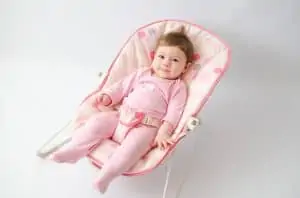Growing up, I thought my dad was too strict and overprotective. Dealing with overprotective parents can be a major drag, but was it my interpretation, or was he over the top?
My mom is too overprotective, too, well, not at my age. But back then, I thought I had it bad. Now that I’m a mom myself, I have much more clarity.
So, was I dealing with overprotective parents? When I think back to the time they refused to let me go to Disney World with a group of friends for the weekend, they likely saved my life. When I think back to being able to go out on a date with a boy from school at a restaurant in our neighborhood and being told I wasn’t allowed, it seems overprotective.
Now, as a mom to two beautiful girls who keep growing right before my eyes, I have to stop and look for the signs of overprotective parents. Am I one of them? Is my husband one of them?
Are YOU one of them? There’s only one way to find out…read on!
What is overprotective parenting?
Overprotective parenting is, quite simply, a parenting style that attempts to shield children from everything: the good, the bad, the ugly. So from physical, emotional, and mental pain.
It usually doesn’t come from a bad place. After all, who wants their children to fail? Who wants them to feel sad? Unloved? Scared? We don’t want them to feel these things. Yet, part of life is learning how to adjust to these emotions.
It’s not a pleasant thought, but one day, we’ll be gone, and our children will have to learn to live without us. Hopefully, that day won’t come until we’re so old we’ve gone into centenarian status. If we shield our children from everything, they will be ill-equipped to move forward in their lives any time any setback arises.
Being overprotective tends to come from a well-intentioned place. But in psychology, I’ve seen so much of this. Some parents will do everything to plow a way through for their children to succeed, while others will barricade them and shelter them away so thoroughly that neither one of these scenarios ends with people who grow into functioning, happy, and productive adults. They turn out just the opposite.
As an adult, I now see my parents weren’t as overprotective as I thought. As a teen, they seemed like the worst, always out to ruin my fun. What I interpreted then as ruining my life very likely saved it and could be the reason I’m still here today.
How do you know if you’re being overprotective or just being safe? Good question! Let’s talk about that!
I’d like to illustrate with an example.
My parents refused to let me go see Van Halen the first time I asked. But my friend’s parents were willing to let her go because her older brother, who was deemed safe and responsible, said he’d be happy to take her. My parents knew her parents, and they knew her son too, and they decided that if he were going, I could go too.
Did you ever have the good fortune of going to a concert as a teenager? They get pretty rowdy. I do recall getting bonked on the head by somebody with combat boots walking the crowd in later years. But not at this concert.
In a roundabout way, my point was that my parents didn’t want to ruin my fun, but they wanted an adult with me to keep me safe. Since I deemed them horribly uncool at the time, I didn’t want to be seen at Van Halen (or any other concert) with them following me around.
Note that:
Overprotective parents come in a variety of forms. There’s the overly cautious parent that hovers and protects. We all must resist this urge when our children are toddlers. As they wobble on their feet trying to walk, we have to let them fall and experience it, so they learn.
Of course, we can make it safer by putting protectors on sharp-cornered furniture or putting down rugs and mats that cushion the fall a bit. But we need them to learn so they can grow.
You can’t protect them from everything, as you’ll soon learn. You’ll be at the playground and want to put up a bubble to keep them from falling. You can’t learn to get back up if you don’t fall, though.
My eldest fell off the monkey bars right in front of me. I had to fight the urge from that point on to hover. Of course, she was fine, but she learned from it and became very confident in her abilities.
Enabling is another overprotective parent trait. Do you give your little one more and more chances to re-do everything? You’ve got to let that go, like Elsa says, and let them fail. They will learn to blossom from failures, I promise.
Overprotective parents also force their own decisions. I’m not talking about setting rules for the home that keep your kids safe. I’m talking about letting them decide who they want to be friends with, activities they want to pursue, and those sorts of things. Read below, and you’ll learn the signs that could indicate you’re an overprotective parent.
What are the signs of overprotective parents?
Are you worried your child will get hurt? Are you afraid they won’t be successful if you don’t do everything for them? You might just be an overprotective parent.
These are the signs of overprotective parents that you should keep in check:
You make all their decisions
Children need to learn how to make their own choices, even if they make the wrong choice first. The reason? They will never be able to do a thing for themselves if you’re making every decision for them.
Sometimes it’s scary to try something new. My eldest wanted to join the running club. I had to squelch my worries and tell her to go for it. I was scared she’d hurt herself or not like it, but she absolutely loves it.
Giving advice when asked is a very different thing. To this day, I still call my parents and ask for advice. I don’t want them to decide for me, but I want another perspective from someone I trust, and that’s exactly the key for you with your children.
Bubble-wrapping to protect from failures
You know that bubble-wrap you get in your Amazon packages? Well, we can’t wrap our kids in that to protect them from ouchies, both physical and mental. Our kids need to fail on their own so that they can rise to greatness.
My eldest got a low score on a math test. She felt sad, so I hugged her. I’m horrible at math, but I took a look. And I complimented her on the stuff she did right. She said she wasn’t sure what she’d done wrong. I encouraged her to ask her teacher, which she did. She now knows how to solve that type of math problem all on her own.
Why didn’t I call her teacher myself? Because she’s the student, and she’s not a baby anymore. I taught her to be proactive and speak to her teacher so she can learn. Now she has this skill for life.
Overreacting and fearfulness
I didn’t yell or get upset with my daughter’s math test. Why? She’s just a kid. She will take lots more tests and ace more of them than she will fail. She needs to fail sometimes to stay humble and retrace her steps of where she fell short. This will help her move mountains in the future.
Then there’s fearfulness, where you constantly worry your children are going to be hurt at the slightest thing. This one, for me, is a big one to let go.
Why?
Because when my daughters were smaller, and we’d first moved back to the states, my eldest accidentally slammed her little sister’s fingers in the bathroom door. Thankfully, they weren’t broken, but my heart hurt for my baby.
My eldest cried and cried herself because it was an accident, and she felt awful that she hurt her sister. For a while, I had to stop myself from saying, “Be careful!” and “Watch out!” all the time.
I almost started to become the parent that wouldn’t let my kids bring the dishes from the table to the kitchen. I feared they’d drop them and break them. Then I realized these things are part of life. If I sit there and bubble-wrap them from this, they’ll go to pieces as grownups when this happens, so I let it go.
Too obsessed with achievement
This is the one my husband is guilty of, but this was the norm in his culture. Still, he’s learning each day to encourage rather than obsess. Celebrate the accomplishments your children make and relish those moments rather than be hyper-focused on everything in the future that they’ll be working toward.
Going to the extreme with rules and rewards
Let’s look at both sides of this. If you’re too strict with rules, your child never learns to be her own person. And with rewards, you want your child to be driven by their motivation to succeed, not to expect rewards for every little thing they do.
What causes a parent to be overprotective?

There are so many things that can make you overprotective as a parent. For me initially, it was when I only had my eldest. I was always worried she’d get hurt or sick. But I give myself a break there because I raised her in a foreign country with horrible healthcare.
For others, they may have had a rough life before they became parents. They push too much for success because they don’t want their kids to struggle.
And still, others are like my husband, raised by different cultural norms.
Whatever is causing you to be overprotective, though, you can dial it down now. Otherwise, you’re not doing your child any favors.
What are the effects of overprotective parents?
If you’ve read this far, then you might be questioning the effects that come from being an overprotective parent. While there is no one right way (or wrong way for that matter) to parent, you will want to let things go just a bit to do what’s best for your child.
What could go wrong if you don’t?
- Your child will be unprepared
When you step in and intervene with everything for your child, they will come to adulthood and have no way to handle both minor setbacks and significant obstacles.
- It could lead to lying
I’ve seen it often in what I do too. Children that feel smothered by parents will tell lies because they feel pressured when trying to meet expectations. They’re not doing it out of a place of evil, but more out of protection because they fear you’ll blow your top.
- They’ll have low self-esteem
Part of failing and flailing as a child means that you’re building your self-esteem. You can’t do that without tripping up a few times. It’s so tempting to do everything for them, but they can’t do it for themselves when you do. You know that old saying about teaching a man to fish, right? This applies here too.
Helicopter parents need to go back to the heliport and come in for a landing. Overprotective parents and anxiety go hand-in-hand. A 2013 study from the University of Mary Washington revealed children parented by helicopter parents were much more likely to experience both depression and anxiety as teens and into college.
- They will be afraid of everything
The world is a scary enough place as it is. Please help your child have the confidence to look it all in the eye without blinking. When you’re an overprotective parent, you wind up making your children scared to do the things they want to try. They’ll be too afraid of getting injured or failing too.
- They’ll think the world owes them everything
Wondering what overprotective parenting does that scares me most? You’ve got an entire generation of people that are now adults that think the world should give them what they want. They hold no accountability and think everyone should give them what they want.
I’ve long despised participation trophies. Kids should work to earn things and learn the disappointments that come with it, even if they put in hard work to win. We’re not seeing this as much now, which means you’ve got lots of people demanding to be accommodated for something they haven’t earned in the slightest.
Do overprotective parents cause anxiety?
Yes! I briefly touched on overprotective parents and anxiety just above. Studies show that being overprotective with your children even in early childhood can cause anxiety disorders later on.
Is it good to be overprotective?
Keep in mind; it’s one thing to be watchful and offers assistance. It’s another to shelter your child from these experiences. I’ll give an example that hopefully shines a light on it. It’s an excruciating thing for me to share, but I hope it helps.
A year ago, one of my best friends died of a drug overdose. None of us knew she was doing these things. We were all beyond shocked as she never acted like she was on drugs around any of us, and now we’re left with a gaping hole in our hearts.
My daughters adored her. When she’d come to visit us, she was like an aunt to them. When she died, I didn’t tell my children. This is an example of something you could shelter them from. It’s not a relative they see all the time, and she lived out of state. When they are older, I will let them know, but I will protect them for this.
This is very different from protecting them by bubble-wrapping the world, calling their teachers to ask them to change grades, demanding your child be put on the cheer team when they didn’t make the cut, and that laundry list of other overprotective things parents seem to make the news for these days.
Why are parents overprotective of their daughters?
Parents of daughters have it even rougher. Because we’re tasked with teaching them that sometimes the world treats women differently, that old boy’s club still exists, and we can sit and get mad, or we can equip our daughters for it.
We’re more protective of our daughters because they’re more likely to be attacked in parking lots, raped, or kidnapped. But again, you can’t live in fear it’s going to happen. You have to teach your daughters how to handle those situations and how to always be alert.
My daughters already know that in the parking lot, we are watching everyone around us on the way to the car. In the store, they know to stay near me and not wander out of my line of vision.
How to deal with overprotective parents in adulthood?
Overprotective parents may be a problem in adulthood too. If that sounds like your parents, you need to talk to them. Make it a friendly conversation and let your feelings out.
The changes you want to see won’t happen, though, until you take your own responsibility. You must accept your responses, open up and share your feeling, and then set clear boundaries. Only then can you cut those apron strings. Counseling can help too, which I’d absolutely recommend in this situation.
One final word about overprotective parents…
It’s so hard not to want to wrap your sweet children in your arms and keep them safe always. But that’s not good for them. They’ve got to experience the world. Remember what Marlin said to Dori in Finding Nemo? He said he promised he wouldn’t let anything happen to him. And she said, “You can’t never let anything happen to him. Then nothing would ever happen to him.”
And by “nothing,” she meant he would never experience the world and learn how to handle life independently. Pretty smart words for a cartoon fish!
Leslie Berry lives with her husband and two young daughters in Los Altos, California, where she loves helping other moms get comfortable with motherhood and embracing the insanity with facts peppered with laughs.
She loves eating too much sushi, exercising, and jamming out on her Fender. Read more about Leslie here.




